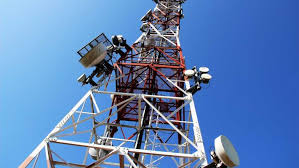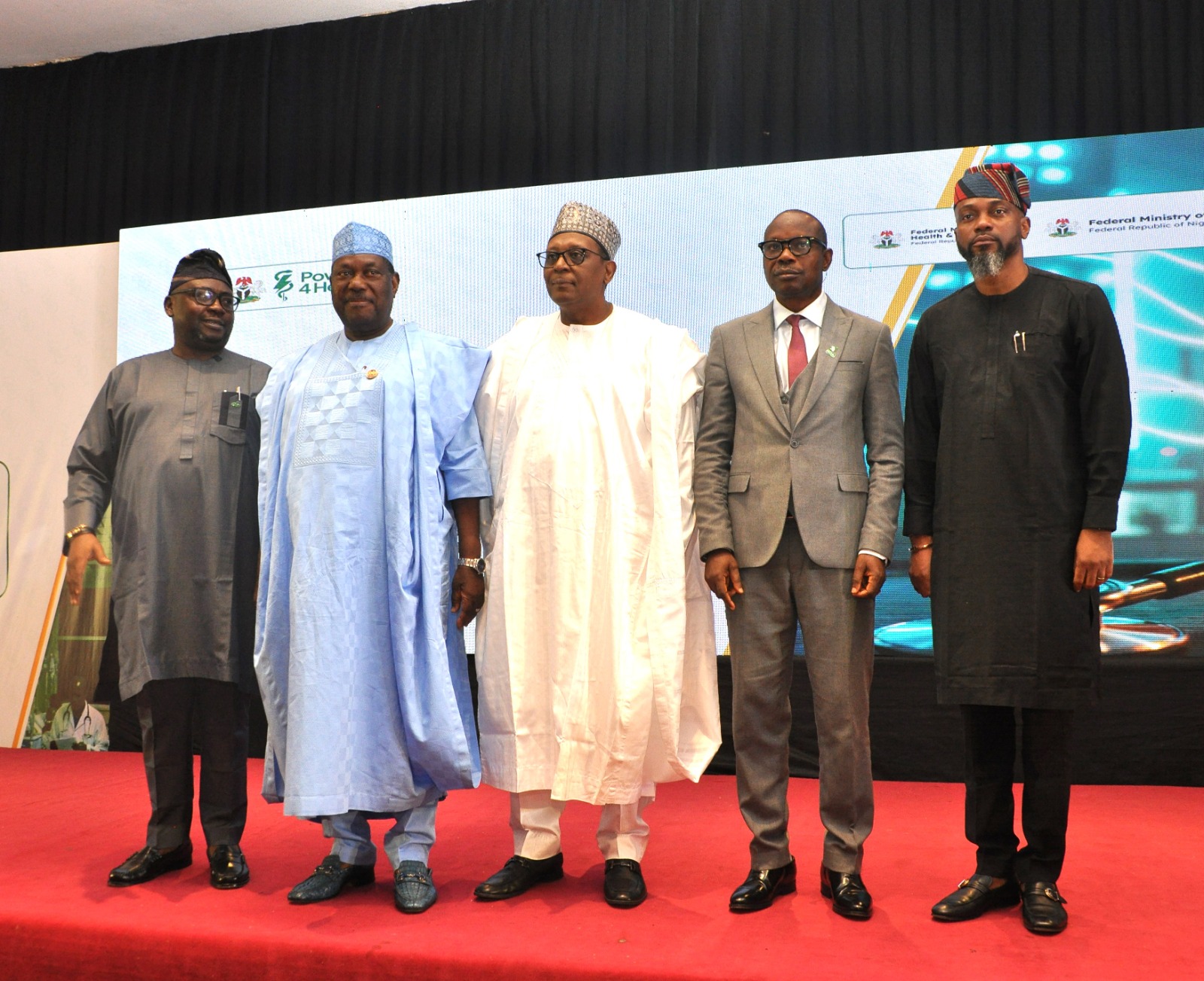In a landmark decision that has sparked widespread relief and optimism across Nigeria, the Federal Government has officially revoked the 5% excise tax that was previously imposed on telecommunications services. This policy reversal, announced on September 11, 2025, is anticipated to alleviate significant financial burdens on millions of mobile phone users, businesses, and telecommunications operators in the country. The decision marks a pivotal moment in Nigeria’s economic landscape, reflecting the government’s responsiveness to public outcry, economic realities, and the need to foster a more inclusive and affordable digital ecosystem.
Background of the Excise Tax
The now-revoked 5% excise tax on telecommunications services was initially introduced as part of the Federal Government’s broader fiscal strategy to boost revenue generation amid economic challenges. The tax, which was applied to services such as voice calls, SMS, and data usage, came into effect in 2022 under the administration of former President Muhammadu Buhari. It was implemented as part of the Finance Act 2020, which sought to diversify Nigeria’s revenue streams beyond its heavy reliance on oil exports.
The introduction of the excise tax was met with immediate resistance from various stakeholders, including telecommunications companies, industry associations, and ordinary citizens. Critics argued that the tax would disproportionately affect low-income Nigerians, who rely heavily on mobile services for communication, financial transactions, and access to information. Nigeria, with a population exceeding 200 million, is one of the largest telecommunications markets in Africa, boasting over 220 million active mobile subscriptions as of 2024, according to data from the Nigerian Communications Commission (NCC). The tax was seen as a regressive measure that would exacerbate the cost-of-living crisis, particularly for rural and underserved communities.
Telecommunications companies, including major players like MTN Nigeria, Airtel Nigeria, Globacom, and 9mobile, also voiced concerns about the tax’s impact on their operations. They argued that the additional financial burden would discourage investment in network infrastructure, hinder the expansion of digital services, and ultimately slow the growth of Nigeria’s digital economy. The Association of Licensed Telecommunications Operators of Nigeria (ALTON) and the Association of Telecommunications Companies of Nigeria (ATCON) were vocal in their opposition, warning that the tax could lead to higher tariffs for consumers, reduced service quality, and stifled innovation in the sector.
The Decision to Revoke the Tax
The revocation of the 5% excise tax comes after months of intense advocacy, consultations, and negotiations between the government, telecommunications stakeholders, and civil society groups. The decision was announced by the Minister of Finance and Coordinating Minister of the Economy, Wale Edun, during a press briefing in Abuja. According to Edun, the move aligns with the administration’s commitment to reducing the cost of living for Nigerians and fostering an enabling environment for businesses to thrive.
“This administration recognizes the critical role that telecommunications play in the daily lives of Nigerians and the broader economy,” Edun stated. “The revocation of the 5% excise tax is a strategic step to ease the financial burden on citizens, promote digital inclusion, and support the growth of the telecommunications sector, which is a cornerstone of our digital economy.”
The decision was also influenced by recommendations from the Presidential Committee on Fiscal Policy and Tax Reforms, established in 2024 to review Nigeria’s tax system and propose measures to enhance efficiency and fairness. The committee’s findings highlighted the adverse effects of the excise tax on low-income households and small businesses, which rely heavily on affordable mobile services for their operations. The committee argued that removing the tax would stimulate economic activity, improve access to digital services, and align with the government’s broader goals of poverty reduction and economic diversification.
Impact on Mobile Users
The revocation of the 5% excise tax is expected to have far-reaching implications for Nigeria’s 220 million mobile subscribers. For the average Nigerian, mobile phones are not just communication tools but lifelines for accessing financial services, education, healthcare, and economic opportunities. The removal of the tax is likely to result in lower costs for voice calls, text messages, and data services, providing much-needed relief to households grappling with inflation and rising living costs.
In Nigeria, where mobile penetration is among the highest in Africa, the affordability of telecommunications services is a critical factor in bridging the digital divide. According to the NCC, over 80% of Nigerians use mobile phones for internet access, with many relying on mobile data for remote work, online education, and e-commerce. The excise tax had contributed to higher tariffs, which in turn limited access for low-income individuals and rural communities. By scrapping the tax, the government aims to make telecommunications services more affordable, thereby fostering greater digital inclusion and participation in the digital economy.
For instance, a typical prepaid mobile user spending ₦5,000 monthly on airtime and data could save approximately ₦250 per month due to the tax revocation. While this amount may seem modest, it represents significant savings for low-income households, particularly in rural areas where disposable income is limited. Cumulatively, these savings could translate to billions of naira annually for Nigerian consumers, boosting disposable income and stimulating economic activity in other sectors.
Implications for Telecommunications Companies
The telecommunications industry, a key driver of Nigeria’s economy, stands to benefit significantly from the tax revocation. The sector contributes approximately 14% to Nigeria’s GDP, according to the National Bureau of Statistics (NBS), and employs millions of people directly and indirectly through its value chain. The removal of the excise tax is expected to ease the financial strain on telecommunications companies, enabling them to invest in network expansion, infrastructure upgrades, and innovative services.
Telecommunications operators have long argued that the excise tax increased their operational costs, forcing them to either absorb the additional expense or pass it on to consumers through higher tariffs. The revocation of the tax is likely to stabilize tariffs and potentially lead to price reductions, making services more competitive and attractive to consumers. Industry leaders have welcomed the decision, with MTN Nigeria’s CEO, Karl Toriola, describing it as “a win for both consumers and the industry.”
“We commend the Federal Government for listening to the concerns of stakeholders and taking decisive action to remove the excise tax,” Toriola said. “This will enable us to focus on delivering better services, expanding our network coverage, and driving innovation to meet the needs of our customers.”
The decision also comes at a time when telecommunications companies are under pressure to improve service quality and expand coverage to underserved areas. Nigeria’s rural communities, which account for nearly 50% of the population, remain underserved in terms of mobile network coverage and internet access. The removal of the tax could free up resources for operators to invest in closing this gap, thereby supporting the government’s goal of achieving 70% broadband penetration by 2025, as outlined in the National Broadband Plan.
Broader Economic and Social Implications
Beyond its immediate impact on mobile users and telecommunications companies, the revocation of the 5% excise tax has broader implications for Nigeria’s economy and society. The decision aligns with the government’s Renewed Hope Agenda, which prioritizes economic growth, job creation, and poverty alleviation. By reducing the cost of telecommunications services, the government is taking a significant step toward making digital tools more accessible to all Nigerians, particularly those in marginalized communities.
The telecommunications sector plays a pivotal role in Nigeria’s digital transformation, enabling advancements in fintech, e-commerce, agriculture, education, and healthcare. For example, mobile money platforms like OPay, PalmPay, and M-Pesa have revolutionized financial inclusion, allowing millions of unbanked Nigerians to access financial services through their mobile phones. Similarly, edtech platforms like uLesson and healthcare apps like Helium Health rely on affordable mobile data to deliver services to users across the country. The removal of the excise tax is expected to enhance the affordability and accessibility of these services, driving further innovation and economic growth.
Moreover, the decision is likely to have a positive ripple effect on small and medium-sized enterprises (SMEs), which form the backbone of Nigeria’s economy. SMEs rely heavily on telecommunications services for marketing, customer engagement, and online transactions. Lower telecommunications costs could enable these businesses to operate more efficiently, reach new markets, and contribute to job creation.
Public and Stakeholder Reactions
The revocation of the excise tax has been met with widespread approval from consumers, industry stakeholders, and civil society organizations. Social media platforms, particularly X, have been abuzz with reactions from Nigerians celebrating the decision. Many users expressed relief at the prospect of lower mobile tariffs, with some calling for telecommunications companies to pass on the savings to consumers promptly.
“This is a big win for Nigerians! Telecom services are already expensive, and removing this tax will make life a bit easier,” tweeted @NaijaTechGuru, a popular tech influencer on X. Others, however, urged the government to ensure that telecommunications companies do not exploit the situation by maintaining high tariffs despite the tax removal.
Civil society groups, such as the Consumer Protection Council (CPC) and the Nigeria Consumer Advocacy Network, have also praised the decision but emphasized the need for transparency and accountability. They have called on the NCC to monitor telecommunications companies closely to ensure that the benefits of the tax revocation are passed on to consumers.
Challenges and Considerations
While the revocation of the excise tax is a positive development, it is not without challenges. The Federal Government must now address the revenue shortfall resulting from the removal of the tax, which was projected to generate billions of naira annually. To mitigate this, the government may need to explore alternative revenue sources or improve the efficiency of existing tax collection mechanisms. The Presidential Committee on Fiscal Policy and Tax Reforms is expected to play a key role in identifying sustainable solutions to this challenge.
Additionally, the telecommunications sector faces other systemic issues that the tax revocation alone cannot address. Poor network quality, frequent service disruptions, and limited coverage in rural areas remain significant pain points for consumers. The NCC and telecommunications operators will need to work collaboratively to address these challenges and ensure that the benefits of the tax revocation translate into tangible improvements in service delivery.
Global Context and Comparisons
Nigeria’s decision to revoke the excise tax on telecommunications services aligns with global trends aimed at promoting digital inclusion and affordability. Countries like Kenya, Ghana, and South Africa have implemented policies to reduce the cost of mobile services, recognizing their critical role in economic development. For example, Kenya’s government has invested heavily in subsidized internet infrastructure to boost connectivity in rural areas, while Ghana has introduced tax incentives for telecommunications companies to encourage investment in underserved regions.
By scrapping the excise tax, Nigeria is positioning itself as a competitive player in Africa’s digital economy. The move could attract foreign investment in the telecommunications sector and enhance Nigeria’s reputation as a hub for technological innovation on the continent.
Conclusion
The Federal Government’s decision to revoke the 5% excise tax on telecommunications services is a significant step toward easing the financial burden on millions of Nigerians and fostering a more inclusive digital economy. The policy reversal reflects the government’s commitment to addressing the concerns of citizens and stakeholders while promoting economic growth and digital transformation. As Nigeria continues to navigate its economic challenges, the revocation of the tax serves as a reminder of the power of responsive governance and the importance of prioritizing affordability and accessibility in critical sectors like telecommunications.
For mobile users, the immediate benefit will be lower costs for voice, SMS, and data services, translating to increased disposable income and greater access to digital opportunities. For telecommunications companies, the decision provides an opportunity to invest in innovation and network expansion, ultimately benefiting the broader economy. However, the success of this policy will depend on effective implementation, transparency, and collaboration between the government, regulators, and industry players to ensure that the benefits reach all Nigerians.
As the country looks to the future, the revocation of the excise tax could serve as a catalyst for further reforms aimed at reducing the cost of living, promoting digital inclusion, and positioning Nigeria as a leader in Africa’s digital revolution. For now, millions of Nigerians can breathe a sigh of relief, knowing that their mobile bills will be a little lighter in the months to come.








